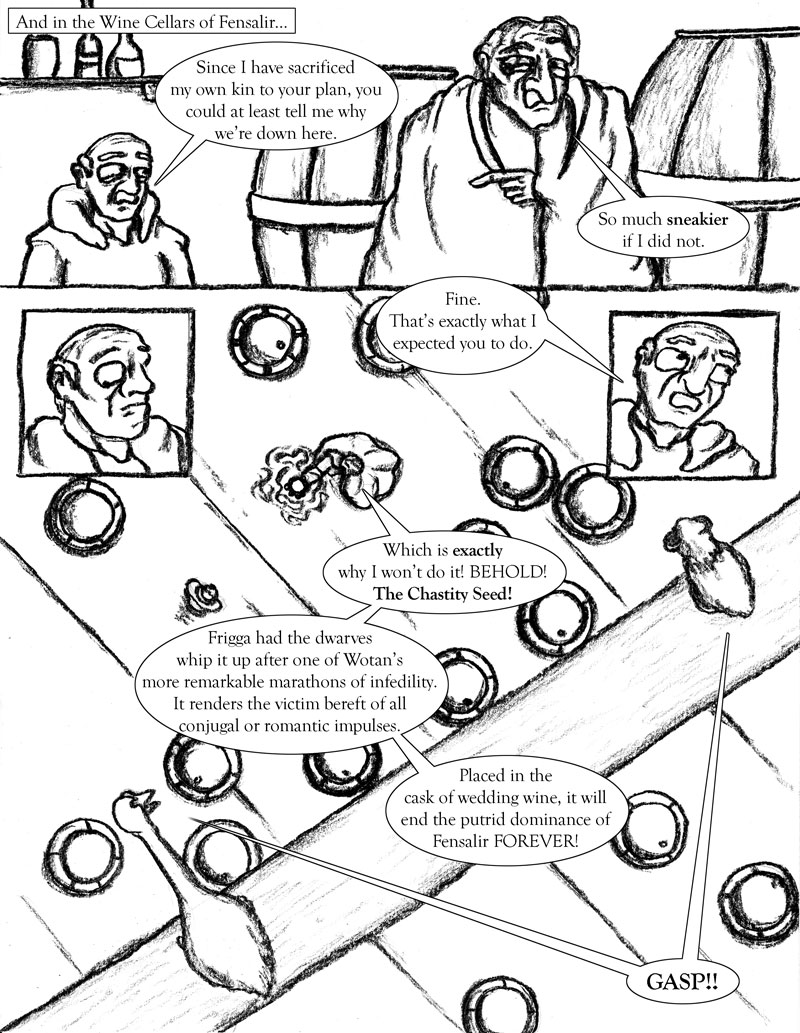|
Excersus LXXII: Pro Seed, Warily




A Response to Roger Olson:
Astrid Johannsen recently brought my attention to this article by Roger Olson about Nihilism and Atheism, which asserts essentially that one cannot be an atheist without being a nihilist, and that atheists are accidentally, not fundamentally, ethical. I responded wiht the following:
Ah, this article takes me back to earnest university discussion groups. So, in that spirit, a sticking point: namely, that theism and nihilism have much more in common than atheism and nihilism do. For the theist and nihilist both, the question of the metaphysics of Meaning is of supreme importance – the one in asserting the existence of a Meaning beyond life itself, the other in the absolute denial thereof, are both chained to it as the central issue of life. This is not the case with the atheist, who looks at such carryings-on, shrugs his shoulders, and goes on with the business of life. To commit one’s self dogmatically to an issue that language can’t properly resolve is decidedly not the business of the atheist, and so both nihilism and theism are equally foreign to him.
You define atheism in a very theistic fashion, for the purposes of simplifying argumentation, but it is really a linguistic issue. And this is why the comments about the ethics of the atheist fall somewhat flat as well – is obedience without understanding really ethical behavior? The Bible is full of people doing supremely awful things because they were told to by a supposedly holy man – is the ethical sense of such a person really all that laudatory? The atheist has to choose to be ethical you say – but then so does the parishioner. It is supposedly easier for the latter because of the Wrath of God, but then, that also makes it easier for him to act unethically when a person in a position of religious power tells him to. This is the problem with dogmatic ethics – the point at which you are asked to Question No Further is the point where ethics fundamentally cease to exist. This is a problem for the theist, not the atheist.
There is much else to be said about the article - it is always interesting to read people who believe in God because they believe it to be Reasonable, rather than because they Gut Feel it. Such folks are usually just a brief nudge away from being atheists themselves - there are only so many times that you can spackle the still absurdly creaky ontological argument before the futility of the attempt seeps into your pores and you decide to through in the trowel.
- Count Dolby von Luckner
|